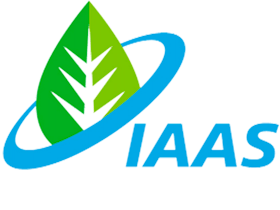The 2022 International Association for Agriculture Sustainability (IAAS) Annual Meeting was held as a webinar on the 2nd of December. This webinar addressed themes such as how to “Deepen Agriculture Literacy to Enhance the Value of Agriculture,” “Reversing Rural Poverty through Agricultural Education” and “Halal Development: Trends, Opportunities and Challenges,” as well as successfully brought together nearly 300 scholars, researchers, industry professionals and investors from 30 countries to discuss Agriculture literacy and Halal development.
“The influencers in today’s world range from known celebrities to social media and television programmes. As such, to better enhance and understand agriculture products and sustainability, starts with educating the younger generations through schools with materials and knowledge, further influencing and educating their family and friends,” said Dr Cheng-I Wei, professor and acting chair at the Department of Nutrition & Food Science, University of Maryland, and Honorary Chairman of IAAS, in his opening remarks.
Dr Stanford Blade, dean of the faculty of agricultural, life and environmental sciences at the University of Alberta, Canada, highlighted the major issues which challenge the integrity of the agrifood system, and the reasons why we shall focus on agricultural literacy in his speech.
Besides Dr Stanford Blade’s sharing, Dr Mathew Baker, professor and department head at Texas A&M University; Glenn B. Gregorio, director of SEARCA; and Dr Melissa Leiden Welsh, assistant clinical professor at the University of Maryland, USA also shared their research findings from multiple perspectives on agriculture literacy, and how to carry out various agricultural development programmes for the younger generation. This panel discussion was moderated by Dr Tan Wee Liang, associate professor of strategic management at Singapore Management University (SMU) and Vice Chairman of IAAS.
As we know the Halal industry is booming business on a global scale, IAAS invited senior professionals from Singapore, Malaysia, Indonesia, and Turkey to share their views on how to capture the growth of the Halal market. Dr Harlina Suzana Jaafar, associate professor, head of the Centre for Halal Management and Business Innovation, Faculty of Business and Management, Universiti Teknologi Mara (UiTM), Malaysia shared a detailed analysis of the recent development of the halal market and its forecast for the future, as well as Malaysia’s determination to develop the halal market and its efforts to establish a global authority in halal food standards in her speech.
The most intriguing topic discussed during the panel discussion was “Halal Development: Trends, Opportunities and Challenges”. Topics discussed include The Global Islamic Economy and where the Halal industry fits, current and future major markets opportunities and challenges, Halal supply chains and food technology issues with respect to Halal. The panel was moderated by Mr Zalman Putra Ahmad Ali, director of Halal development at the Islamic Religious Council of Singapore (MUIS) and comprised Dr Harlina Suzana Jaafar and Dr Murat Yaş, assistant professor at Marmara University, Turkey, and Dr Nancy Dewi Yuliana, assistant professor and researcher at IPB University, Indonesia.
Other highlights of the 2022 IAAS Annual Meeting was the Donation Ceremony. In order to pay tribute to Dr Vijay P. Singh, who never forget to remain true to his original aspiration, while achieving his own success, the founder of IAAS, Mr Michael Fu, made a small personal contribution to the G.B. School in Agra, India. Dr, Vijay P. Singh also attended the ceremony and warmly thanked the donors for their continued support and generosity. Dr Vijay P. Singh is the founder of the G.B. School in Agra, India.
The conference ended with an annual report and closing statements by Dr Tzong-Ru Lee, chairman of IAAS and professor at National Chung Hsing University. He mainly focuses on two major takeaways. Firstly, transition from traditional agriculture (traditional farming) to modern agriculture with the aid of technological advancements, whereby education is the key solution for us to make Agriculture development sustainable. Lastly, the global Halal market has emerged as a progressive component in the global economy; And hopes that through this conference, IAAS will help both Muslim and non-Muslim countries and industries to deepen cooperation and seize opportunities for a better future.
Publish your content with EB Publishing
It's about who you reach. Get your news, events, jobs and thought leadership seen by those who matter to you.











